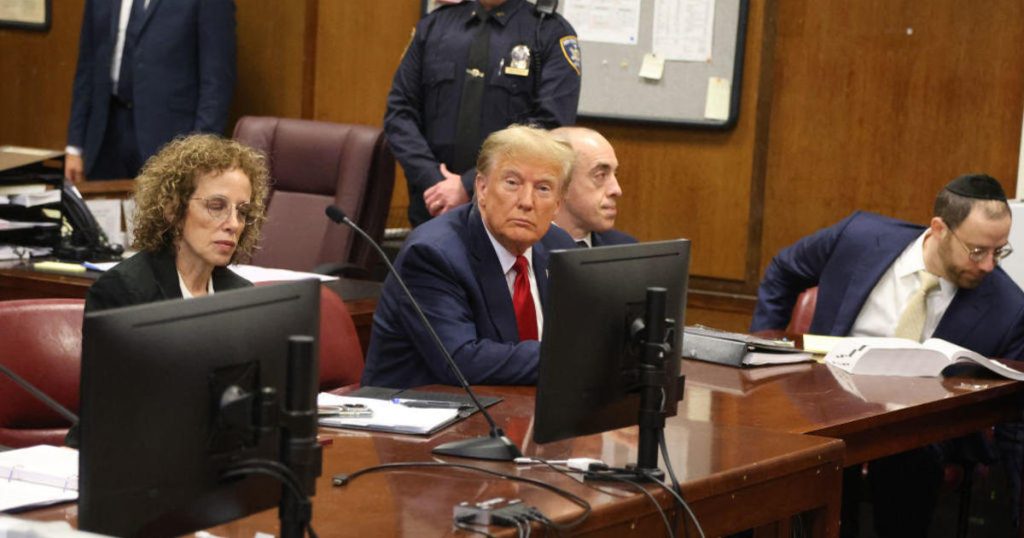The historic criminal trial of former President Donald Trump is set to begin in a Manhattan courtroom on Monday, marking the first time a former president has faced trial in U.S. history. The trial, prosecuted by Manhattan District Attorney Alvin Bragg, is based on allegations that Trump made a “hush money” payment to an adult film star to conceal damaging information about him during the 2016 election. Trump has made multiple attempts to delay the trial, all of which have been unsuccessful.
The case revolves around a payment made by Trump’s attorney at the time, Michael Cohen, to adult film star Stormy Daniels, in exchange for her silence about an alleged affair with Trump. Prosecutors claim that Trump reimbursed Cohen through the Trump Organization, falsifying business records to conceal the true nature of the payments, which were intended to prevent Daniels from revealing details about her encounter with Trump. Trump faces 34 felony counts of falsifying business records and has pleaded not guilty to all charges.
The trial officially begins with jury selection on Monday, with over 500 Manhattan residents summoned as potential jurors. Prosecutors have stated that the core of the case is that Trump repeatedly falsified business records to conceal crimes related to the 2016 presidential election. Trump has continually accused Bragg of politically motivated prosecution and has voiced criticism against the judge handling the case. Despite being under a gag order, Trump has made unfounded claims about the case and the legal proceedings.
The trial will not be live-streamed due to New York state law prohibiting the broadcasting of criminal proceedings. However, CBS News will have reporters covering the trial from the courtroom and an overflow room on the same floor. Trump’s legal team is led by Todd Blanche, Susan Necheles, and Emil Bove, among others, with Blanche also representing Trump in two federal criminal cases. The trial is taking place at the Manhattan Criminal Court, with Trump expected to attend all proceedings unless he applies for a waiver.
The trial is anticipated to last between six to eight weeks, with proceedings scheduled for four days a week. The prosecution will present its case first, followed by the defense. If convicted, Trump could face a maximum sentence of four years of incarceration for each count. The judge overseeing the trial will have the discretion to determine the sentence, which could range from prison time to no incarceration at all. Trump has expressed willingness to testify in the trial, but it remains unclear if his lawyers will call him to the stand.


